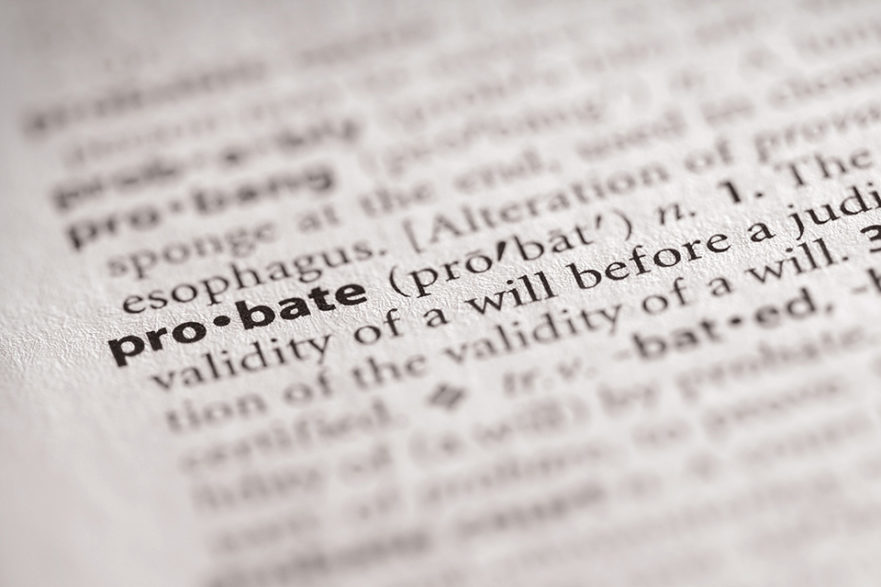When you are planning your estate, you might hear that your Will has to go through probate and that you should avoid the probate process. Not only do people have stories of experiencing a drawn-out legal process or of someone taking advantage of the system, but these unfortunate experiences are all occurring following the death of a loved one. Despite probate’s unfortunate bad reputation, it is actually a very beneficial method to distribute an estate. The National College of Probate Judges was established in 1968 in response to issues with the probate system. According to their website, they are dedicated to improving probate law and probate courts. As a result, today, the probate process has been revised to restore the integrity of the part of the judicial system that probate represents.
What is probate?
Probate is the judicial process used to distribute an individual’s estate based on what was directed by their Last Will & Testament. The personal representative (the individual appointed by the deceased in their will) handles the affairs. This individual has a broad range of powers, but because the process is flowing through the judicial system, the courts oversee it to ensure that the personal representative is acting according to their legal duties.
How long does probate take?
The probate process typically takes between 6 months to a year, but it really depends on multiple factors such as the size of the estate and the temperament of those involved.
The process requires filing a petition with the court to open probate, setting a date for hearing – at which the judge will issue “letter testamentary” authorizing the personal representative to carry out the directions of the Last Will & Testament – notifying creditors, and allowing a statutorily defined period of time for claims against the estate to be made.
How much does a probate lawyer cost?
In Tennessee, lawyers charge hourly, as opposed to taking a portion of the estate. So, again, the cost depends on the circumstances. In addition, one should expect to pay filing fees and the cost of publishing notice in the newspaper for unknown creditors.
So, while utilizing other methods to transfer property outside of probate may be beneficial from a simplicity perspective and sometimes financially advantageous depending on the circumstances, the probate process is designed to ensure the decedent’s property is passed in the intended way, while resolving any claims by third parties against the estate.

